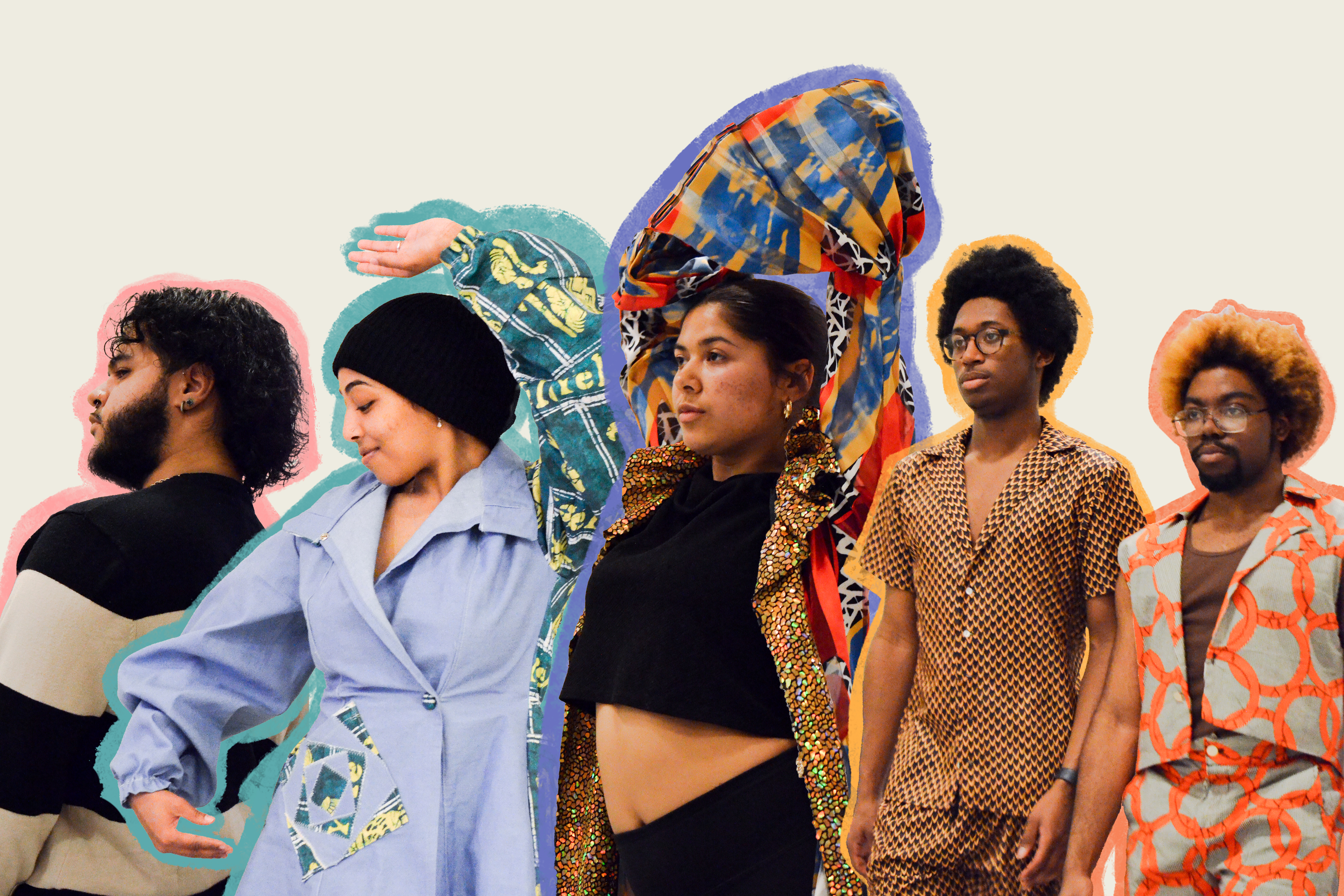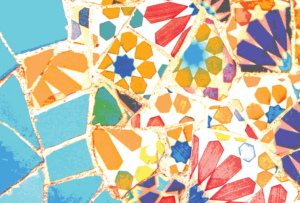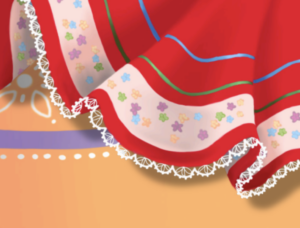After classes end for the day, the dingy rooms in the bowels of the Davis Performing Arts Center typically remain empty and darkened, often overlooked and underutilized by students searching for a quiet corner to study in. For the past two weeks, however, those same spaces have instead been revived by rhythmic Afrobeats, African high fashion, and jovial cheers as the ABISSA 2024 performers rehearse for their April 13 show.
Hosted by the African Society of Georgetown (ASG), ABISSA is the university’s premier African cultural showcase, where students from the African diaspora highlight the richness of cultures from the continent through fashion, dance, and performance. The show will serve as the final flourish of Africa Week, a series of events hosted by ASG over five days dedicated to centering African cultures and issues.
“It’s a beautiful struggle,” Mamadou “Momo” Diabate (SFS ’26), a member of the ABISSA committee, said. “Especially since I’m acting and modeling, it’s definitely more responsibility because you have a lot more on your hands to do.”
What makes ABISSA stand out as a cultural showcase is the unique blend of performance mediums the show incorporates. Like past shows, the ABISSA committee is weaving together traditional fashion walks with a theatrical play, this year choosing to tell a strife-filled story of an African bride and groom-to-be.
“With African weddings, there’s a lot of drama, and the atmosphere is crazy,” Diabate, who plays the groom, said. “After reading the play, I love the idea already. There’s a lot of drama, a lot of funny moments.”
Just as crucial to ABISSA’s success is the excellence of the African couture featured in the show. Students from Georgetown and other schools in the DMV will be modeling outfits curated by different African designers along the East Coast. But with a continent as diverse and culturally rich as Africa, the challenge has been collecting fits that represent the whole continent instead of just one region.
“With the clothes, we’ve been trying to get as many different cultural clothing as possible from different parts of the continent,” Iman Fadlalla (SFS ’26), the social chair for ASG, said. “I think hopefully we’re doing a good job with that but that is something we’ve really been trying to improve upon this year.”
At a predominantly white institution like Georgetown, ASG strives to cultivate a strong affinity space for all students part of the African diaspora, and ABISSA plays a fundamental role in this mission. All three ASG members I spoke to emphasized how significant the show is to Georgetown’s African students and its Black community as a whole.
“I think it’s important we host this event every year so we don’t forget our culture at Georgetown. It’s very easy to forget where you come from, coming here,” Toluwani “Tolu” Baoku (CAS ’27), head of modeling for the show, said. “[Georgetown] is a white-dominated space. [It’s important] to be able to create that space for ourselves and to be able to play around with our culture, where we came from, and our history.”
Diabate discussed the potential for ABISSA to bring newer students into the African community at Georgetown. “Maybe there might be some students who are African that we may not have seen before on campus […] I feel like [ABISSA] allows students to come out of their shell and get involved with the campus community,” he said.
Even though ABISSA is of great importance to students of the African diaspora in particular, organizers also emphasized that all members of the Georgetown community should attend since it is one of the best ways to experience and learn about all the continent has to offer.
“I think ABISSA is a really great opportunity for people to just come and learn more about the different African cultures and traditions,” Fadlalla said. “I think people generalize Africa as having one culture and language—so the whole point of this is just to show how diverse Africa truly is.”
Baoku felt similarly: “You’re going to be exposed to some cultures and traditions you’ve never been exposed to before. I guess you can really appreciate African culture as a whole after watching it.”
As much as ABISSA presents a chance for non-African students to learn about an oft-ignored region of the world, it also provides a night for the crowd to enjoy themselves while cheering on the incredibly talented performers. While some shows on campus prefer quiet from the audience, Fadlalla emphasized that attendees should feel free to interact with the show throughout the night: “You don’t need to stay silent and watch. You can be like, ‘oh my god!’ and ‘wow!’” In other words, leave those introverted tendencies at the door, and let the performers know when they’re killing it.
At ABISSA rehearsals, a reverent tone diffuses throughout any room the performers are practicing in. As models strut down a makeshift runway and strike a razor-sharp pose, their peers vocalize their approval. As actors recite their lines, observers mimic audience reactions to evoke the feeling of being on stage. Even though most will be backstage for the real show, it’s clear that the people behind ABISSA wants Lohrfink to feel spirited and joyous during the performance, in which the audience is invited to play a huge role.
There are a plethora of reasons why you should consider attending ABISSA 2024 this year. If you’re part of the African diaspora, it could be your introduction to a community that appreciates and understands your identity like no other. If you’re not part of this community, it is an opportunity to share in your peers’ beloved traditions, popping the cultural bubble you may find yourself in. Regardless, for everyone, ABISSA looks to be an incredible night of African music, dance, fashion, drama, and fun, done in spectacular style.
ABISSA 2024 will take place on April 13 at 7:30 p.m. in Lohrfink Auditorium. Tickets can be purchased on CampusGroups beginning at $15.






